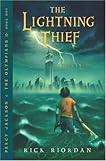 The Mysteries of Udolpho
The Mysteries of Udolpho by
Ann Radcliffe
My rating:
3 of 5 stars
"Emily gazed long on the splendours of the world she was quitting, of which the whole magnificence seemed thus given to her sight only to increase her regret on leaving it; for her, Valancourt alone was in that world; to him alone her heart turned, and for him alone fell her bitter tears.”
When I first read
Northanger Abbey I thought that the Gothic novel referenced in the book,
Mysteries of Udolpho, was made up.
Then, a couple of years later, I decided to see if it was real. Lo and behold, it was! I downloaded it for free off Project Gutenberg (
link to the book here) and began to read it.
Emily St. Aubert is a young lady who lives with her parents in a villa in Gascony. Having a father who quit "society" to live a secluded life in the country, her daily activities consist in taking long walks in the woods, playing the lute and singing, reading and writing romantic poetry, reading romantic authors, and fainting in random spots.
No, just kidding about that last one. Fainting is more of a weekly occurrence for Emily than a daily one.
Then, after living their happy peaceful lives, tragedy strikes. Emily's mother becomes ill and dies (for reasons of which I'm still not sure) and, after some fainting, weeping, and sighing, she and her father decide to go on a vacation to help her father's ailing health.
After wandering around the Pyrenees for a while, admiring the views, painting, sketching, writing and reciting romantic poetry, and sighing over the beauty of the mountains, they run into a
hitchhiker traveler named Valancourt, who is also wandering around the Pyrenees admiring the views.
Obviously, they get on well together, and they wander around and sigh over beauty (with Emily and Valancourt exchanging a few shy looks) until Valancourt decides to go his own way.
Then Emily and her father wander and sigh at the beautiful mountains some more (with a little bit of sighing over how Valancourt would love to look at these mountains) when their carriage is pursued by a lone horseman.
Monsieur St. Aubert is frightened - he thinks perhaps they are being chased by
banditti - so he whips out his pistol and shoots the rider, who just happens to be... Valancourt!
The gun shot only broke his arm, however, and he is
forced to stay with them a little longer and alas, has to be taken care of by Emily. What a tragedy.
Of course, they fall deeply in love, before Valancourt, after being healed, must rejoin his regiment, from which he was on leave.
Emily and her father are making their way home when Monsieur St. Aubert worsens, and they must stay in a villa (which holds a mysterious secret), until Monsieur St. Aubert dies. There is much weeping and sighing, and Emily almost decides to join a convent, but decides to go home instead.
Now that you've read this far you may skip book one and start directly with book two.
No, I'm serious. The novel is divided into four "books," and what I just described all takes place in the first book, accompanied by page after page after page of description and detail.
The second book is where the action really starts to happen. In fact, the entire novel could have started with the second book, instead of providing us with the immense backstory of the first.
In the second book, Emily goes to live with her aunt (who enjoys "society!" Oh the horror.) Emily's undiscerning aunt marries a rich man named Montoni. Surprise, surprise, Montoni is an evil Italian banditti lord who lives in the secluded Castle Udolpho, where he takes his new wife and niece.
This is where the book starts to get exciting. A great portion of the scenes inside Castle Udolpho had me holding my breath as Emily escaped danger after danger, discovered a mysterious secret, was held captive, was threatened, sighed, fainted, and wept.
Through it all, the only thing that keeps her going is that somewhere Valancourt is waiting for her, and her hope that someday they will be reunited.
For all I've made fun of it,
Mysteries of Udolpho was a fun book to read, if a little tiring at times.
Emily is a strong heroine (despite all the fainting) and is intelligent, opinionated, and brave. Valancourt is a little more flawed - a little sappy and foolish - but he's all right as a character. Montoni is a truly good villain - I mean he's really good at being bad. He's frightening by being cool and calm and in control.
There is some really good suspense, but it's often disrupted by Anne Radcliffe's pageful of description of details that we don't really need, or interrupted by one of Emily's long poems that she recites for the reader's sake, poetry that has nothing whatsoever to do with the story.
I need to read
Northanger Abbey again, because I can appreciate it more now that I've read the book it makes fun of.
It seems to me that
Mysteries of Udolpho was the
Twilight of its time, spawning a whole genre of copycat Gothic novels (none of which I'm planning to read!)
Someday I would really like to edit or abridge(or read an edited or abridged)
Mysteries of Udolpho. It's got great potential, but to our modern ear for sparse, to-the-point prose, it just doesn't work.
However, don't let that deter you from reading it. If you can get past or ignore the descriptions, the poetry, and the long, unnecessary dialogue, it's a really fun and thrilling book.
Have you read Mysteries of Udolpho or any other Gothic novel? Have you read Northanger Abbey? Let me know by commenting!
 Four Quartets by T.S. Eliot
Four Quartets by T.S. Eliot















